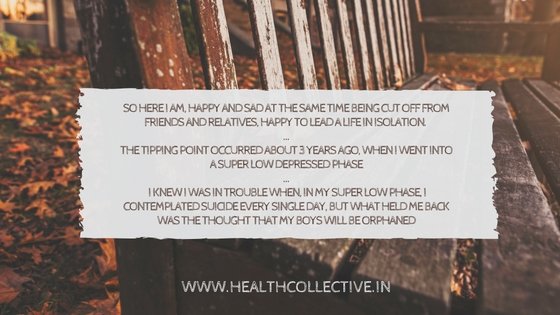Legends of Tomorrow: Talking Mental Health and Queer Lives through Sci Fi and Fantasy
By Ilina Acharya
There is something about the show Legends of Tomorrow that has left me captivated. Maybe it is the revelation that there are TV shows such as this that are queer, have kickass female leads as well as fun and diverse characters. Some strange plot devices notwithstanding, it’s a pretty entertaining show. And who said entertainment is always meant to numb the mind? (Adorno, Frankfurt School etc etc.) Sometimes you find something meaningful in the unlikeliest of places.
Get ready to do some time. DC’s #LegendsOfTomorrow returns Monday, October 22 on The CW! pic.twitter.com/VRI8qs8iuP
— Legends of Tomorrow (@TheCW_Legends) October 1, 2018
I was surprised to find myself watching sci-fi, a genre I have never really gotten into. Legends is driven by the common sci-fi plot and narrative device of time travel. I include ‘narrative’ because apart from the multiple plot lines in the series — the exploration of the characters’ pasts or the love story between the two female leads — it is time travel that propels the show, much like in our own lives. No matter what we are going through, or what obstacles come our way, time propels us forward. And that is why there is hope — there is always a tomorrow. And that is precisely what the ‘legends’ have to defend.
A quick description of the main plot line: the Legends have to restore history and put the ‘anachronisms’ that are displaced across time back in their rightful place. Otherwise time and all of human history will be destroyed by the cruel time demon ‘Malus’.
ALSO READ: MENTAL HEALTH AND INDIAN POP CULTURE
The defence of tomorrow is something deeply personal at this moment in my life. It calls for self-care and safeguarding today, the here and the now. What is beautiful in all of this is that time is a guiding force, while also keeping you rooted. It is the momentary present that keeps me rooted. It is also the surety of another tomorrow: the simultaneous play of the rise and setting of the sun and moon; the ebb and flow of seasons; that gentle, breezy transition (seeing as we are at the brink of October) into what I would like to imagine as ‘fall’ (because is there really a ‘fall’ in the plains of North India?). And fall I might, as we all do, but this is just the natural course of things; as seasons fall into one another, there is also the promise of soft, warm sunshine on your skin in the depths of winter.
In the handful of sci-fi or fantasy series I have watched, the demons and evil powers that take over characters are symbolic of mental health and depression. In one of the episodes of Legends for instance, the demon Malus takes over the character Sara Lance’s psyche. She is left in the dark space that is her mind, all by herself. She is convinced by Malus that she is a ‘bad’ person as he selectively shows her some of the cruel deeds of her past. Sara sees no love, happiness, strength, hope or self-belief. She also knows these events of her past are not fabrications; but that is all she sees. And in this manner, Malus, who is symbolic of the demon that is depression (‘malus’, meaning ‘bad’, is also the Latin root word for ‘malice’), takes over her mind. It is not until Ava Sharpe, the woman she loves, reminds her of the very real and positive aspects of her character and life, and the people that love her for who she is, that Sara is brought back to the reality of the material world, surrounded by life and love. I couldn’t help but see this as a reflection of my own mental health and the demons I battle every day. Seeing this unexpectedly represented on screen, even in the guilty pleasure that is this series, was something deeply affirming.
ALSO READ: SELF-CARE IN THIS JOURNEY CALLED LIFE
Seeing Malus/malice as mental illness also brought me think to think of anxiety and/or depression as power. This is power not in terms of ‘repression’, but as a creative and productive force that permeates our very being, thoughts, bodies and desires. This is Foucault’s notion of power, where power relations work at the “intra-subjective level”.
Power “doesn’t only weigh on us as a force that says no… it [also] induces pleasure, forms knowledge, produces discourse.” For Foucault, power and knowledge are “mutually constitutive”; one does not exist without the other. Knowledge and power work in tandem, like a parasite that permeates and grows further on sites conducive to discourse. Even writing this piece on mental health is a site of knowledge creation and discourse, and yes, power.
The mind is also one such site. I have noticed that my anxiety has a magnetic propensity for discourse and knowledge. It is very much like a demon that absorbs knowledge and only grows in power to use the very same knowledge to color or distort my thoughts.
This might be far-fetched, but these analyses and analogies, while also a creative and productive working of power as knowledge, help me to not let ‘Malus’ define me. It is a complex relationship with anxiety, just as it is with power. And just as it is with power, it has to be understood and not simply resisted.
This TV series was a little reminder for me to cut myself some slack. It takes immense strength to fight your demons. Some days you succeed, and on other days the demon has the upper hand. It is a constant tête-à-tête, which can leave you exhausted. So be kind and patient, and show yourself some love, even a tiny fleck that you find in the recesses of your heart and mind.
As the character Nate Heywood says to Ray Palmer, “You’re a delicate flower, Ray Palmer, take care of that heart of yours.”
ALSO READ: THE FREEDOM SERIES
Another aspect of the show that struck me was the depiction of a romantic relationship between two strong female characters. The portrayal of this relationship is unlike what is usually depicted on screen or in literature. The usual plot includes what author Jane Rule calls “more powerful judgements than pages of sermonising”, which is solely based on morality[1]. This mostly happens by getting the characters killed, or lazy and insincere representation that is just meant to titillate the audience. This is now termed as ‘queerbaiting’, in order to garner more TRPs from the LGBTQ+ audience. But the representation of queer experience in art and culture goes much beyond the simple ambit of plot.
There is also the question of the language of sexuality: what is the language of expressing female desire? Is there one? Furthermore, is there a ‘queer gaze’? Do queer artists, or characters, see the world in a particular way? How is this depicted in queer literature or cinema? Does sexuality merely equal sex? How does sexuality play a role in the way one views and negotiates the world?
Every day is #NationalGirlfriendsDay when you’re in love. Stream DC’s #LegendsOfTomorrow: https://t.co/7ilPNfrajl pic.twitter.com/NIGBRWDAz6
— Legends of Tomorrow (@TheCW_Legends) August 1, 2018
Interestingly, the Hindi word for desire is ‘ichcha’, meaning will. This word also ties closely with the Urdu word ‘marzi’, which is to take agency and act upon the will. Female sexuality that is governed by patriarchy tends to get lost between ‘ichcha’ and ‘marzi’. (There is also ‘manmarzi’, which suggests desire in/of the mind, which also relates to the language of sexuality and not merely an erotic, bodily experience.) But what is refreshing about the representation of this relationship in the show is that it fuses ichcha and marzi, where ichcha is implicit in marzi. It is a relationship of equality and mutual respect, something we definitely don’t see in the heteronormative world of rom-coms or other films. Sara Lance and Ava Sharpe are rivals but they are also partners that help and uplift one another, both in their professional and intimate lives.
I would like to see this as a positive step in the representation of queer lives on screen. But I wouldn’t deny there is a little bit of ‘queerbaiting’ in this show as well.
Mental health and homosexual love, generally considered taboo subjects, are in fact interspersed in the ‘mainstream’ through metaphor and symbolism. One only has to look in the spaces between…
[1] From the essay “Sexuality in Literature” by Jane Rule
[2] From introduction in Woman’s Relationship with Herself: Gender, Foucault and Therapy by Helen O’ Grady
This is a longer version of a blog that first appeared on https://betweenthehitherandthefarthershore.wordpress.com/. You can read more of Acharya’s writing on her blog. Ilina Acharya is a recent graduate of Masters in English from Ambedkar University, Delhi (AUD). Among other things, she loves to read, write, run, and play the guitar.
Feature Image by Peter Lewicki on Unsplash
Disclaimer: Material on The Health Collective cannot and does not claim to substitute for expert advice from a trained professional. Share your stories with us, if you like — Tweet @healthcollectif or mail us right here





Pingback: Your Stories: How the Urdu Ghazal became ‘Therapy’ for Me